Charter School Leadership
Elements for School Success
Cameron Curry
ROWMAN & LITTLEFIELD EDUCATION
A division of
ROWMAN & LITTLEFIELD PUBLISHERS, INC.
Lanham New York Toronto Plymouth, UK
Published by Rowman & Littlefield Education
A division of Rowman & Littlefield Publishers, Inc.
A wholly owned subsidiary of The Rowman & Littlefield Publishing Group, Inc.
4501 Forbes Boulevard, Suite 200, Lanham, Maryland 20706
www.rowman.com
10 Thornbury Road, Plymouth PL6 7PP, United Kingdom
Copyright 2013 by Cameron Curry
All rights reserved. No part of this book may be reproduced in any form or by any electronic or mechanical means, including information storage and retrieval systems, without written permission from the publisher, except by a reviewer who may quote passages in a review.
British Library Cataloguing in Publication Information Available
Library of Congress Cataloging-in-Publication Data
Library of Congress Cataloging-in-Publication Data Available
ISBN 978-1-4758-0326-6 (cloth : alk. paper)ISBN 978-1-4758-0327-3 (pbk. : alk. paper)ISBN 978-1-4758-0328-0 (electronic)
 TM The paper used in this publication meets the minimum requirements of American National Standard for Information Sciences Permanence of Paper for Printed Library Materials, ANSI/NISO Z39.48-1992.
TM The paper used in this publication meets the minimum requirements of American National Standard for Information Sciences Permanence of Paper for Printed Library Materials, ANSI/NISO Z39.48-1992.
Printed in the United States of America
Acknowledgments
To Barbara for your unwavering love, support, and encouragement that gave this flight wings.
For Jordan, Elizabeth, and Kate to know that all things are possible.
To John and Kevin for always believing.
To Ashley for your attention to detail and editing that brought the extra shine.
To Rebecca for your guidance, candor, encouragement, and push that I needed to start this journey.
This book is for the dreamers and believers: for the ones who want to make a difference for students and communities, in pursuit of improving public education for us all.
Preface
Are you bored with life? Then throw yourself into some work you believe in with all your heart, live for it, die for it, and you will find happiness that you had thought could never be yours. Dale Carnegie, American writer
We have heard it said a thousand times, If you have nothing nice to say, dont say anything at all! If one were to make a small change to this age-old statement of wisdom, it could be related to leadership: If you have nothing of value to say, dont say anything at all.
We have all found ourselves at a dinner party, a meeting, or surrounded by strangers when the conversation is moving at a good clip, wondering what to say or when to leap into the stream of dialogue without missing a beat. The goal is to add some significance based on our point of view, while contributing some meaningful value to the interaction.
I know a few peopleand I am sure you also have these people in your lifewho can pontificate way too long on subjects they know little or next to nothing about. These individuals tend to be the resident expert that can clear a room, or send the party packing! The rest of the guests would love to get a word in edgewise and enjoy the free-flow of information and ideas, but they are halted by the know-it-all who is stealing the conversation. We often want to avoid these individuals, and we certainly dont want to be known as one!
These are among the thoughts that I considered after 13 years in charter school education. Did I have something significant to add to todays educational conversation? If so, what? As a business and educational leader, I know how much I value spending a few minutes, hours, or days with someone who has run the race before me. What that professional has to share will help me avoid missteps, allow me to see the current forest for the trees, and encourage me to make better decisions based on his or her experiences.
My desire in writing this book was not to be the loudmouth at the dinner party but rather the colleague, friend, or mentor who can offer you words of encouragement and sound advice about how to create, grow, and manage a thriving public charter school.
So in sharing a bit of entrepreneurial wisdom with you, my first piece of advice would be to learn whom to listen to, whose experience can be valuable and gleaned from, and how and when to apply this knowledge to your particular circumstances. I plan to share from my past professional experience of failures and successes since launching my charter school leadership career in 1999 by working in a start-up public charter school that has become a thriving and successful educational organization.
In California, the Charter Schools Act of 1992 opened the door for innovation in public schools that embraced parent choice. The tapestry of my past work experience was clearly woven with appreciation, passion, and the fortitude to survive the wild ride of creating, growing, and managing a new nonprofit public charter school of choice known as The Classical Academies, where I serve as the executive director.
In 1999, our challenges were swift and steep. We needed to find facilities, hire a team, and locate furniture and fixturesall in the faithful pursuit of opening a school to serve elementary students, kindergarten through eighth grade. Being a new charter school, with limited resources, added another layer of challenges as the deadline to open our doors preceeded the states timeline in sending pupil funding to cover the costs of operation.
Over the past decade, I have seen one kindergarten through eighth grade elementary school with 220 students grow into three award-winning public charter schools. These schools serve more than 2,600 students, train and empower more than 1,600 parents, and inspire and motivate more than 200 employees to be and to do their very best in service to others.
This combination of students, parents, and educators working collaboratively in an academic partnership has brought accolades and praise to our schools as well. Here are a few of these honors:
Coastal Academy: First charter school in the state of California to receive recognition as being an Exemplary Independent Study Program.
The Classical Academy: Second charter school in the State of California to receive recognition as being an Exemplary Independent Study Program.
Classical Academy High School: Third charter school in the State of California to receive recognition as being an Exemplary Independent Study Program.
Coastal Academy: Designated a California Distinguished School.
Twelve straight years of exception-free financial compliance audits.
All three schools received accreditation with the Western Association of Schools and Colleges (WASC).
96% satisfaction rating from parents with students in our program.
Mid-800 Academic Performance Index (API) scores for all three schools.
2011 Hart Vision Award for Charter School Leader of the Year presented to Cameron Curry by the California Charter Schools Association.
In 2012, Classical Academy High School was named a top high school in Newsweek magazine, US News & World Report, and the Washington Post.
What has allowed for the growth, development, and management of these successful public charter schools? I believe leadership is the key factor that has propelled our schools to reach new heights in providing exceptional customer service to families, stellar academic outcomes for students, and increased parent satisfaction with our programming.




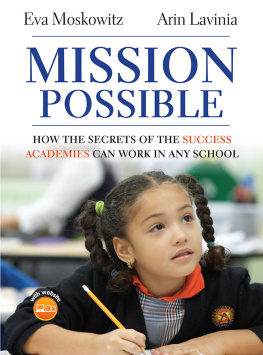
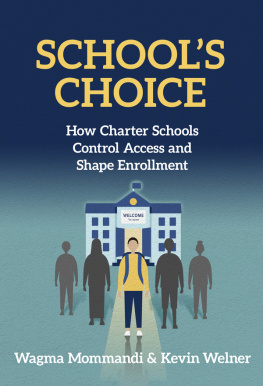
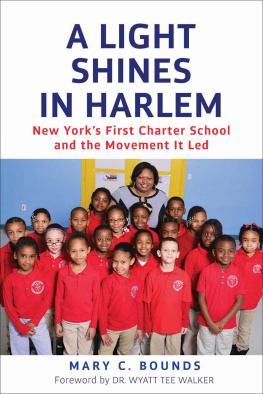
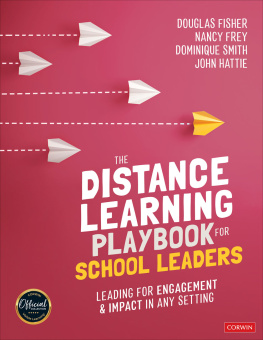

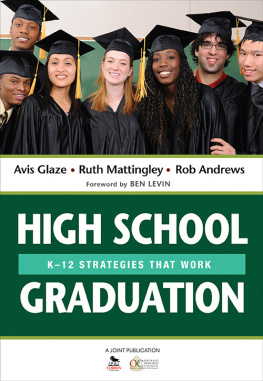
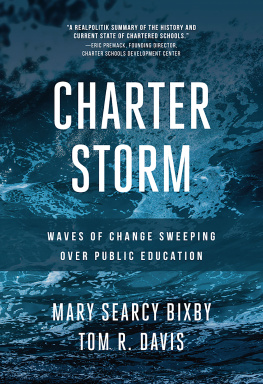
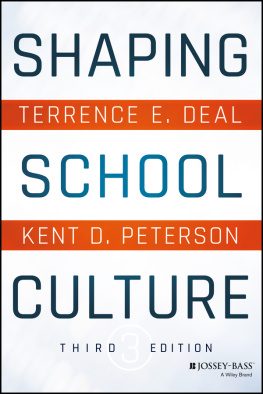
 TM The paper used in this publication meets the minimum requirements of American National Standard for Information Sciences Permanence of Paper for Printed Library Materials, ANSI/NISO Z39.48-1992.
TM The paper used in this publication meets the minimum requirements of American National Standard for Information Sciences Permanence of Paper for Printed Library Materials, ANSI/NISO Z39.48-1992.